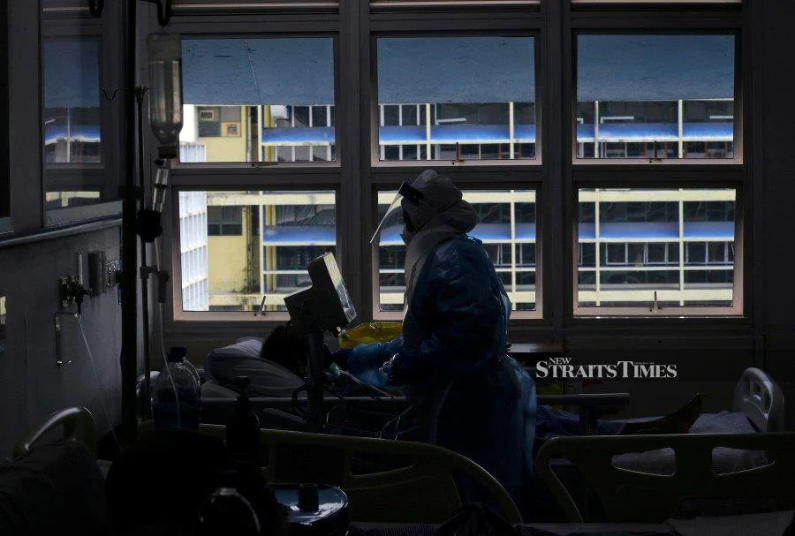By Hana Naz Harun of New Straits Times
KUALA LUMPUR: Key systemic reforms are needed to make primary healthcare services in Malaysia capable of providing whole-person care throughout their lifespan, and not just for specific diseases.
Health Minister Khairy Jamaluddin said the proposed Health White Paper would focus on such fundamental reforms to address major systemic and structural changes faced by the country's healthcare system.
"The White Paper will need to challenge every aspect of the government to think of health outcomes if we are to succeed in keeping Malaysians healthy.
"We need to tackle poverty as a negative determinant to good health and similarly provide quality education, equitable access to services for all, protect the environment, fight and reverse climate change, ensure food and nutritional security, plan for more green, safe, open and liveable spaces in our cities and towns, clean our waterways and water supplies, and allow every person the potential to live a fulfilling and dignified life," he said in his keynote address at the 2022 Health Policy Summit.

Health Minister Khairy Jamaluddin said the proposed Health White Paper would focus on such fundamental reforms to address major systemic and structural changes faced by the country’s healthcare system. - NSTP file pic
He said the health-seeking model, inherited since the time of independence, had changed very little over the past 65 years.
The health model today, Khairy said, was still premised on a predominantly curative lens, responding after the fact to illness, disease and infirmity.
"We do not sufficiently anticipate the future. Patients will usually wait until they are very unwell before actively seeking care from the doctor, often at fairly advanced chronic stages in the cases of non-communicable diseases (NCDs).
"Medical and medical-related professionals spend most of their time caring for patients when seriously symptomatic."
Khairy also said the health system today only marginally tackled and corrected underlying problems, which had been rooted in environmental, socioeconomic and behavioural factors.
He said as a result, there had been an increase in chronic diseases since 2011, based on the National Health and Morbidity survey (NHMS).
The numbers in 2019, he said, showed that one in five adults have diabetes, three in 10 adults have hypertension, and four in 10 adults have elevated cholesterol levels.
"These rates are some of the highest in Asean, making Malaysia one of the unhealthiest nations in the region."
He also said to move from sick care to health care and wellness, the Health White Paper would need to address the imbalance in resource allocation, organisation and policy focus between primary healthcare and hospital care.
Based on global experience, he added that investing in primary healthcare had showed improvements in health outcomes, helping to reduce the overall cost of care, enhance equity and access, and to some extent reduce the adverse impact of social inequalities on health.
"As we have also seen during the Covid-19 pandemic, countries with robust primary healthcare systems were able to respond better and faster to the pandemic, maintaining essential services with minimal disruption.
"At the same time, we must address the maldistribution of equipment, capacity and skill mix between the public and private sectors in the healthcare system, which contributes to gaps in coverage across state and urban-rural lines," Khairy said.
The Health White Paper, he said, should also pave the way for the development of a robust healthcare funding model.
He said coming out of the pandemic, the country recognised that the public healthcare system was "chronically underfunded" against the increasing demands of NCDs, an ageing population, and the emergence of new communicable diseases.
Malaysia's total public spending on health was relatively modest, he said, at 2.58 per cent of the gross domestic product (GDP) in 2020.
In contrast, he said, the World Health Organisation recommended that public health spending should be at least five per cent of the GDP to ensure adequate financial risk protection for the people.
"At this juncture however, I want to state that the Health White Paper is focused on securing long-term change which, in this current economic, fiscal and political climate, demands a gradual and adaptive approach.
"As such, we are considering gradually increasing the healthcare budget up to targeted levels over a number of years while working out funding structures to make the system more sustainable and progressive.
"As the health minister who is committed to healthcare as a public good, I want to raise the annual budgetary allocation for public healthcare to 5 per cent of the GDP over the next few years. And that increase must be ring-fenced in every subsequent budget.
"Above and beyond that, we should discuss other long-term solutions. It is not either one or the other."
Source: New Straits Times
-
In accordance with Medical Device Authority (MDA Malaysia Ministry of Health, Malaysia), MyMedicNews serves as the leading online media in the medical device industry for Malaysia and the ASEAN region. We provide a creative one-stop web portal to deliver the latest news and product development in the medical device industry. Through our portal, key industry players can deliver business information, product, and services effectively to relevant target audience.
Disclaimer: All content is for informational or educational purposes only, and does not substitute professional medical advice or consultations with healthcare professionals. Medical device advertisements and their content are intended for Healthcare Professionals only. More information related to Malaysia medical device news, products, registration, and regulations is available on Medical Device Authority.

